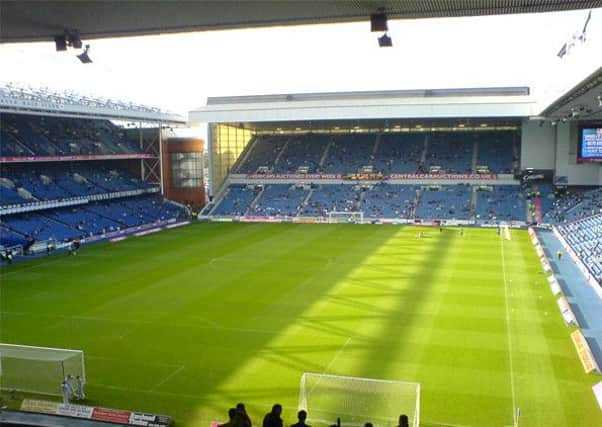Alex Rae, Richard Gough back Rangers fan ownership


A group of Rangers supporters are due to hear a presentation on Friday from Paul Goodwin, head of Supporters Direct Scotland (SDS), at the Louden Tavern in Ibrox. Goodwin will discuss the formation of a Community Interest Company [CIC] that would be run along similar lines to the Foundation of Hearts, the group which has an agreement to buy a controlling interest at Tynecastle and is funded by monthly direct-debit payments from nearly 8,000 individuals.
“The fans are the heart and soul of Rangers Football Club, and one sure way to guarantee that this remains the case at Rangers forever is for the fans to collectively have more power in the club,” Gough said yesterday. “As we are a plc, fans collectively owning shares is in my opinion one way to ensure this, and the more they own the louder their voice. I therefore look forward to hearing what comes out of this meeting on the 14th and hope it moves the cause of fan involvement forward at Ibrox.”
Advertisement
Hide AdAdvertisement
Hide AdRae also said he supported the idea of collective ownership. “When I go to Ibrox I hear the Rangers fans singing ‘Four men had a dream’ about the men who founded the club,” he said. “Well, the many thousands of Rangers fans can now make that dream a reality again by gathering together with the single issue of collectively owning their club. That is why I look forward to hearing what comes from the meeting and to supporting the next step.”
Goodwin declined to say who he would be addressing, but Rangers fans’ representatives warned that the support was a long way off the unity required for such a scheme to take off. “The scheme has merits,” said Drew Roberton, general secretary of the Rangers Supporters Association. “It’s a quick way to raise money should it work. It’s whether people buy into it.
“The shares at Hearts were available to buy in a big block. At Rangers, at the moment, they’re not. The CIC scheme would have to raise enough money to tempt people to sell, and the problem with buying a large percentage of shares gradually is that the price starts going up once people realise you have money.”
Roberton added that his organisation had not been contacted by SDS and would not be attending the meeting. SDS is an umbrella body that liaises primarily with supporters’ trusts at various clubs, so would not automatically get in touch with the Association. But the experience at Hearts was that progress was only made once every organised body of fans united in the Foundation. The Hearts Supporters Trust has a representative on the Foundation board, but so do the Shareholders Association, the Federation of Hearts Supporters’ Clubs and other groups.
An industry insider who is familiar with the process at Hearts warned that unifying the support would only be the first step to any Rangers group being successful in taking over the club. “The biggest problem is the diverse nature of the shareholding at Rangers,” he said.
“At Hearts there were two blocks, one owned by Ukio and the other by Ubig, that together amounted to nearly 80 per cent. Get control of those, as the Foundation now has an agreement to do, and you get control of the club. But, at Rangers, you’ve got to deal with a lot of people. That’s the biggest complication.
“Then, presuming the aim would be to buy a small percentage at a time, there are other questions like which shareholding do you buy? What price do you buy it at – in other words when do you decide to make an offer? And what happens if and when you get to 29.9 per cent and have to make an offer for the rest?”
Besides the fact that the bulk of the Hearts shareholding was in two big chunks, another appreciable difference was the price. At Tynecastle, the Foundation has agreed to pay roughly £2.5million for that controlling interest. That is more than its initial offer, but it was aware from the start of the approximate cost, so could plan accordingly. At Rangers, as the insider explained, there is no such certainty about the cost of taking control.
Advertisement
Hide AdAdvertisement
Hide Ad“In the Foundation’s model, their direct debits will raise enough money to pay off the loan with which they are buying the shares in three to five years. That’s a workable timescale for fans to put in their £10 or £20 each month and know there will be an end product. They will own the club.
“Given the size of the Rangers support, you can see them getting 25-30,000 people signed up if all the groups unite. But what’s the timescale? And what’s the cost? How many of those 30,000 would still be on board if it was to take eight to ten years to build up a big stake?
“But buying a small per-centage – for example three per cent – only gives you the right to make a racket. Nothing else. No real power.”
SEE ALSO